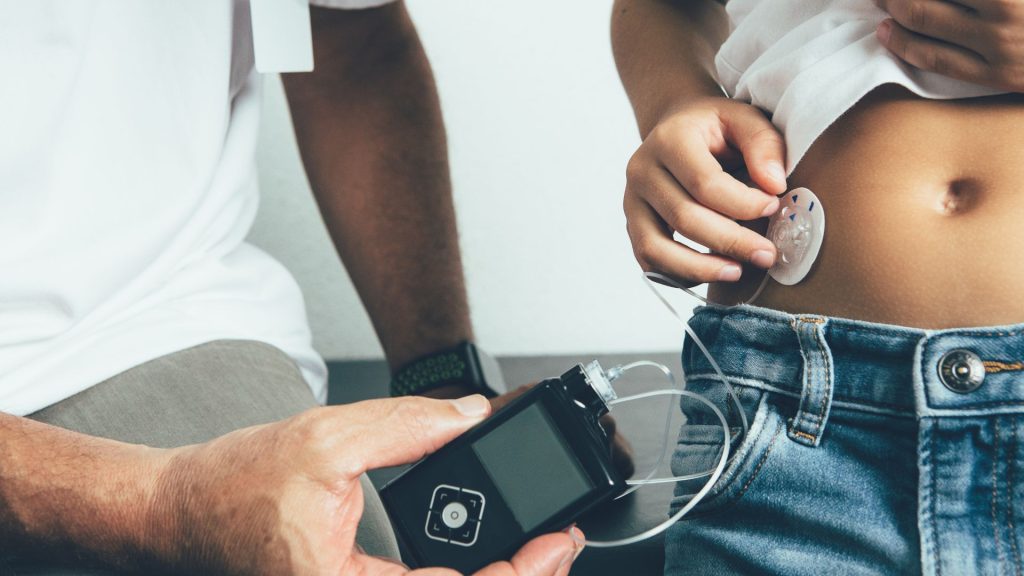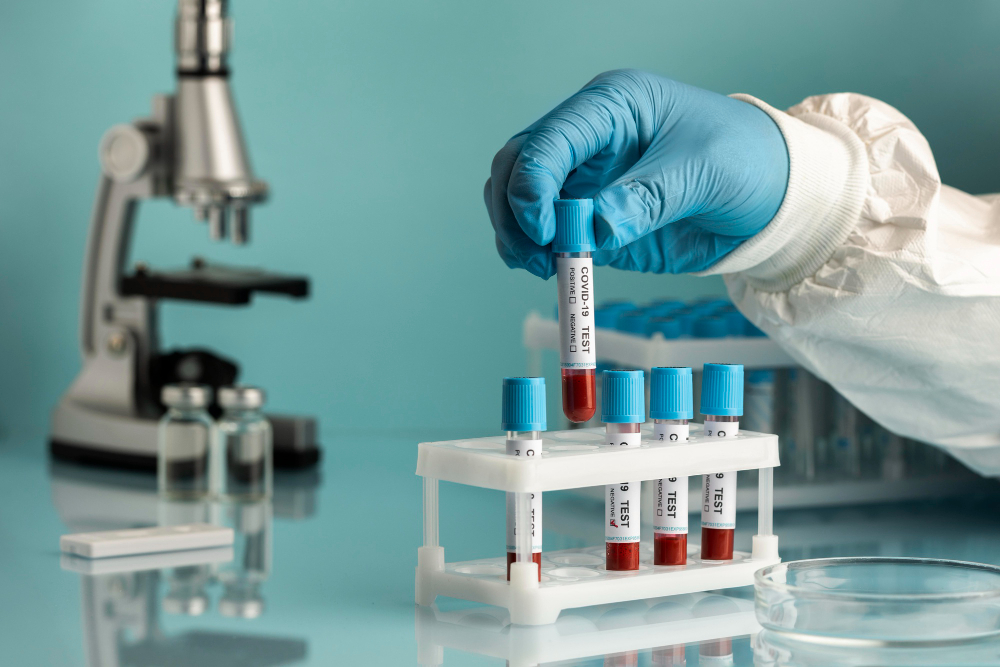Diabetes Treatment in Sugar Land!

Diabetes Management in Sugar Land
Diabetes is a chronic condition characterized by high blood sugar levels due to either inadequate insulin production or insulin resistance. It requires lifelong management, including medication, blood sugar monitoring, healthy eating, physical activity, and regular medical check-ups. Lifetime Primary care sugar land want to make sure that you are under proper guideline for diabetes treatment and management. Proper diabetes management helps prevent complications and maintains overall well-being.
Diabetes is a disease caused by your body’s inability to create or properly use insulin. This results in blood sugar levels that are too high, which can lead to a number of different health concerns.
When you eat, your body converts some of that food to glucose, or sugar, in your blood. Your body then uses that glucose for energy. It needs insulin, a specific hormone, to turn that blood sugar into energy.
In people with Type 1 or Type 2 diabetes, there is a problem with insulin that results in higher-than-normal blood sugar levels.
What’s the difference between Type 1 and Type 2 diabetes?

Type 1 and Type 2 diabetes are both chronic diseases. However, they have some marked differences.
Type 1 diabetes can develop at any age, but people with this type of diabetes usually find out about it before they reach adulthood. Type 2 diabetes, on the other hand, usually develops after the age of 40.
In Type 1 diabetes, your body’s immune system attacks the cells that produce insulin. This leaves you with very little or no insulin in your system to convert blood sugar to energy. As a result, the sugar accumulates in your bloodstream.
In Type 2 diabetes, your cells resist insulin’s efforts to convert your blood sugar. Your pancreas tries to create more insulin to cope, but it’s unable to produce enough to properly process all of your blood sugar. Blood sugar builds up in your blood as a result.
The Centers for Disease Control and Prevention (CDC) indeed provides a wealth of information about living with diabetes. every person with diabetes is unique. What works well for one person may not work as well for another. It’s essential to work closely with your healthcare provider to create a diabetes care plan that fits your personal health goals and lifestyle.
What are the symptoms of diabetes?
Please bear in mind, alongside the signs you mentioned, diabetes may manifest through other less apparent symptoms. These include:
An excessive thirst and frequent need to urinate, often indicative of your body’s struggle to regulate high blood sugar levels. Persistent hunger, linked to your body’s inability to use insulin effectively and supply your cells with energy. Unexplained weight loss, fatigue, and blurred vision can also be symptoms, originating from the body’s desperate attempts to find alternate energy sources and manage elevated sugar levels.
Furthermore, slow healing of wounds and frequent infections can be an adverse consequence of Type 2 diabetes, reflecting the body’s compromised resilience. Some people might notice patches of dark skin, usually in body folds such as the neck or armpits, signaling potential insulin resistance. Numbness or a tingling sensation in your hands or feet may also occur due to high sugar levels causing nerve damage.
However, don’t just focus on these symptoms. They often appear after high sugar levels have wreaked havoc on your body for years. The best preventative measure against diabetes is regular health check-ups, controlling body weight, physical activity, and maintaining a balanced diet. It’s particularly crucial for older individuals and those with increased risk factors such as obesity, hormonal disorders, or pregnancy to monitor their blood glucose levels regularly.
Can diabetes be treated?
Diabetes treatment varies according to its type:
- Type 1 diabetes, often diagnosed in children and young adults, is a condition where the body fails to produce insulin. To manage this, regular insulin therapy is needed, which could involve injections or the use of an insulin pump. Apart from this, individuals with type 1 diabetes should adhere to a nutritious diet and engage in regular physical activity.
- Type 2 diabetes is more prevalent and occurs when the body doesn’t efficiently use insulin, a state known as insulin resistance. Initially, the pancreas attempts to counteract this by producing more insulin, but eventually, it can’t keep up. Treatment for type 2 diabetes can encompass lifestyle modifications like healthier eating, increased physical activity, and weight loss, along with oral or non-insulin injectable medications. In some cases, insulin therapy may be necessary.
- Gestational diabetes is specific to some women during pregnancy. Although it typically disappears post childbirth, it raises the risk of developing type 2 diabetes later. The usual treatment approach includes dietary adjustments and exercise, and in certain cases, insulin might be required.
- Prediabetes is a state where blood sugar levels are elevated but not high enough for a diabetes diagnosis. The treatment strategy for prediabetes majorly involves lifestyle modifications to prevent its progression to type 2 diabetes.
For all types of diabetes, regular monitoring of blood glucose levels is essential. It’s also crucial for individuals with diabetes to regularly visit their doctor for check-ups and manage any other potential heart disease risk factors.
As a reminder, this information provides a general overview of diabetes, and may not be applicable to everyone. It’s always best to seek personalized advice from healthcare professionals.
Physician in Sugar Land For Diabetes Treatment
Our clinic is conveniently located at 16645 W Airport Blvd,Sugar Land, TX- 77498 and we are regularly seeing patients from Sugar Land, Telfair, Stafford, Misery City, Richmond, West Airport, Old Richmond areas. We always appreciate appointment well in advance, however, we are accepting walk in appointment at our Sugar Land clinic. Please call us at (281) 313 0662 to avoid long waiting time. For more information, a diagnosis, or treatment, call LifeTime Primary Care Doctors or schedule your visit online.
Request An Appointment
Meet Us
Call Us: (281 ) 313 0662
Email: info@lifetimeprimarycare.com
PROGRAM OFFERINGS
Services

Chronic Care Mgmt

Management of STD

Annual Wellness Exams

Annual Physical Exams

Diagnostic Testing

School & Sports Physicals
Locate Your Primary Care Physician Sugar Land
16645 W Airport Blvd,
Sugar Land, TX- 77498
Meet Us
Call Us: (281 ) 313 0662
Email: info@lifetimeprimarycare.com
Reach Us
Mon – Fri : 8.30 AM – 5 PM
Saturday, Sunday Closed
Need An Appointment for RT-PCR COVID Testing or Vaccine?
COVID-19 testing and Vaccine are available. We accept most insurance plans. Please note for patients without insurance (self-pay) the RT-PCR COVID-19 test is $75 and the Rapid Antigen Test is $40. Our mission is to make COVID-19 testing available and accessible for everyone in Sugar Land, Texas. Sugar Land primary care clinic LIFETIME Primary Care accepting new patinets. Best place in Sugar Land for preventive care, diagnose and treat common illnesses and injuries, and manage chronic medical conditions.
